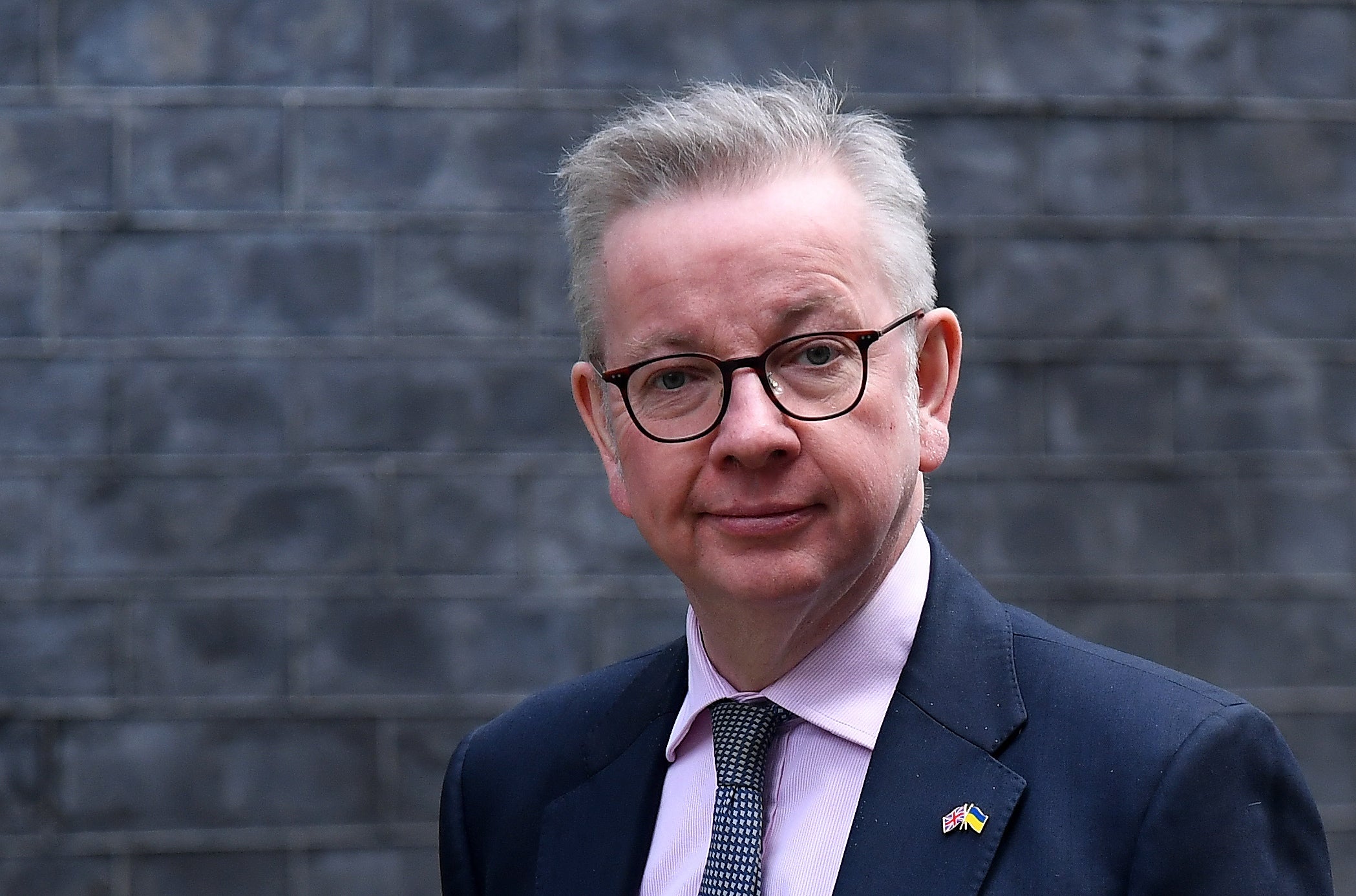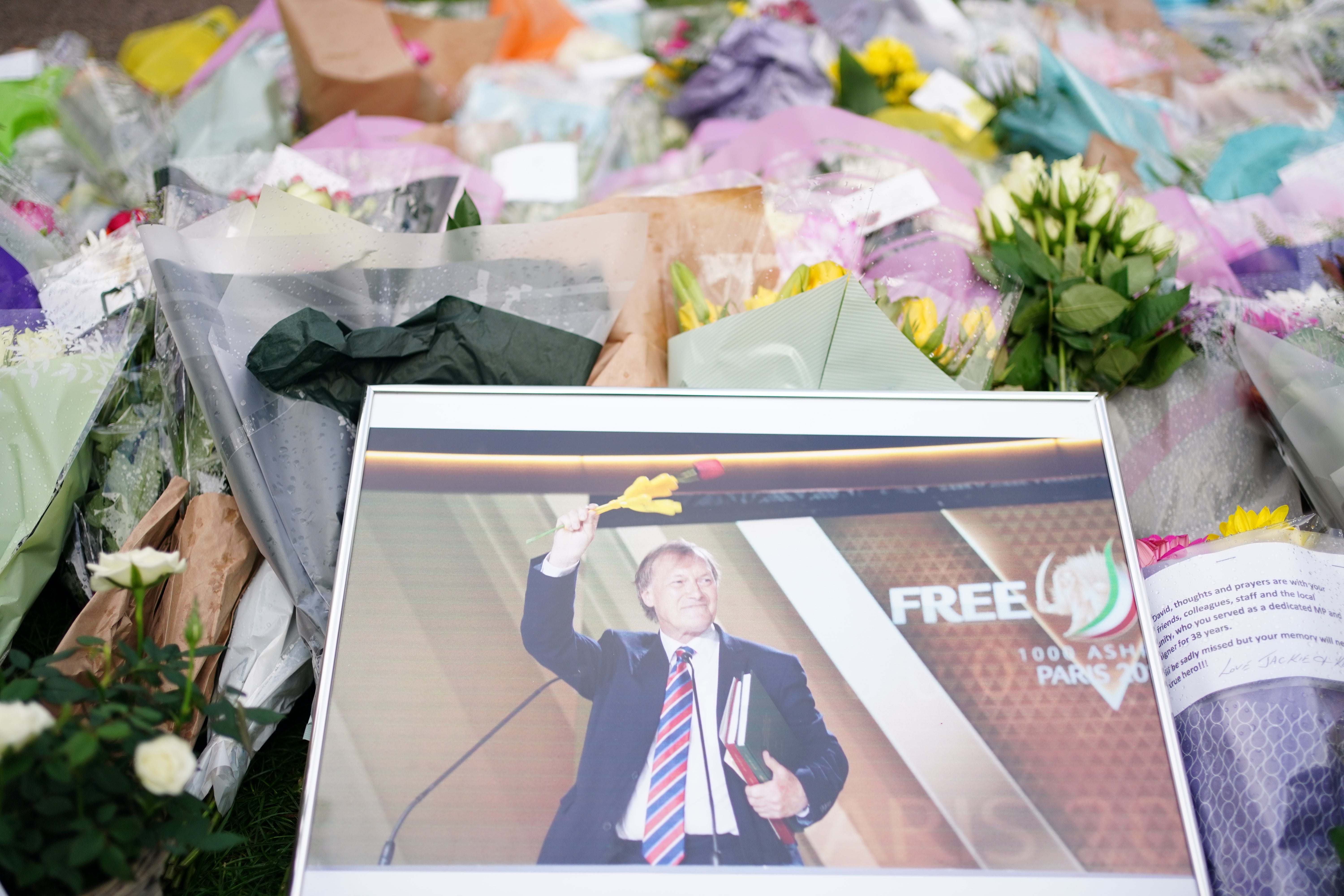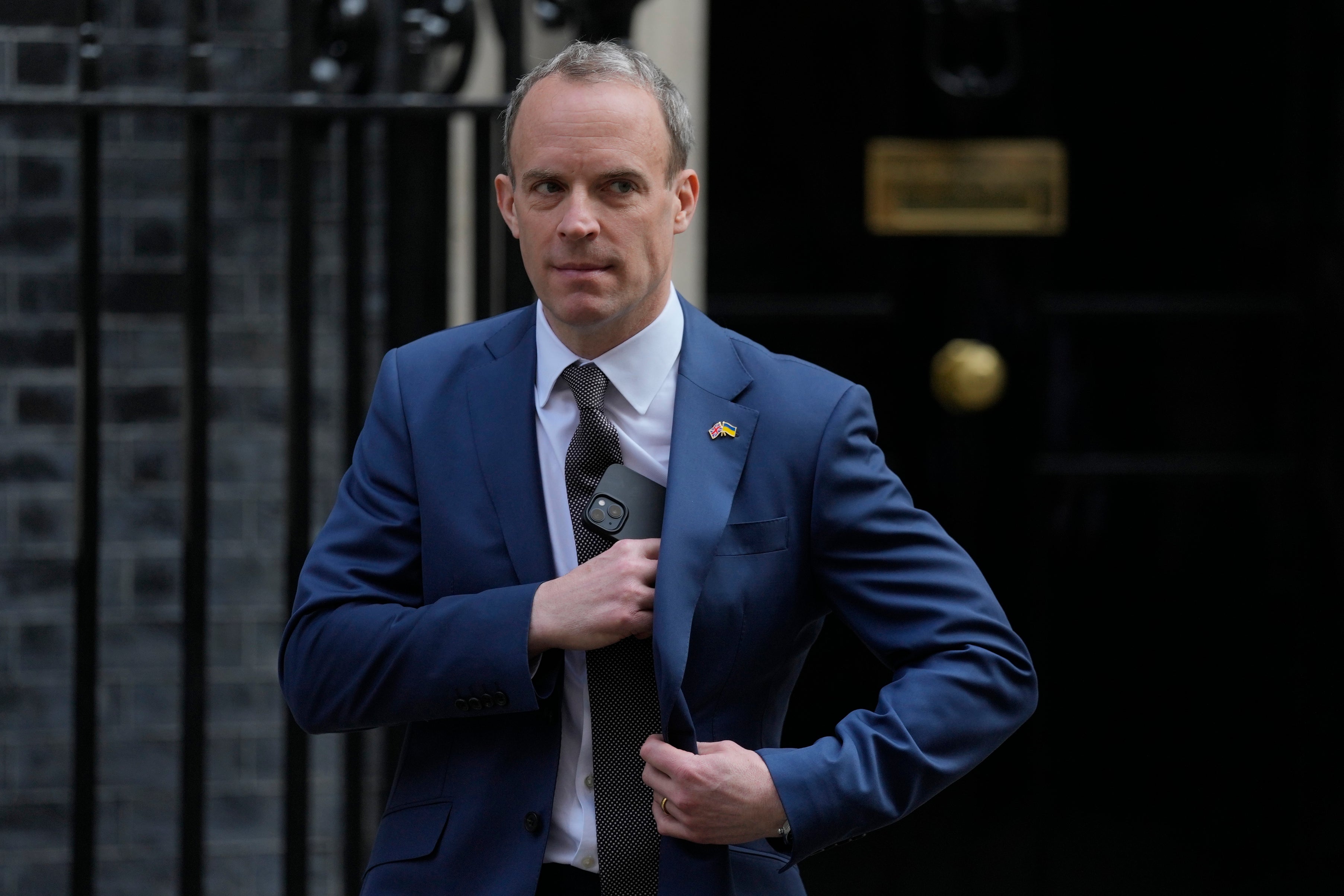‘It’s one off the list’: David Amess killer thought all MPs who voted for Isis airstrikes should die
Ali Harbi Ali said his victim was one of numerous politicians he considered targeting because of votes in 2014 and 2015
The terrorist who murdered Sir David Amess described the father-of-five as “one off the list” and believed that hundreds of MPs who voted for airstrikes against Isis deserved to die.
Ali Harbi Ali, now 26, had been plotting an attack since May 2019 and researched potential targets including Michael Gove, Conservative MP Mike Freer, defence secretary Ben Wallace, deputy prime minister Dominic Raab, Labour leader Sir Keir Starmer and Claudia Webbe.
His trial at the Old Bailey heard that he had walked around outside the Houses of Parliament on at least seven occasions, sometimes carrying the knife he would use to murder Sir David in his bag.
Asked whether he would have tried to kill an MP “if the opportunity had arisen” before the attack on 15 October, Ali replied: “Yes definitely … not just any MP, the ones who voted in those motions to carry out attacks on Muslims in 2014 and 2015.”

He was referring to votes to carry out airstrikes on Isis territory in Iraq and Syria, which he had researched on the “They Work For You” website to find MPs’ records.
While giving evidence at his trial, Ali said that he considered Sir David and all other MPs who had voted for the military action “enemies” who “deserved to die”.
“He won’t be able to vote again so hopefully he will not be able to harm Muslims in that regard - it’s one off the list,” he added.
The murderer said he wanted to “send a message to colleagues who have done similar things - something like that will always have a response”.
Ali said that he had “made excuses” for not launching a terror attack earlier, and that 2020 had been a “write-off year” because the coronavirus pandemic had reduced opportunities.
“I’ll be honest with you; there’s been a lot of times where I’ve gone out in my head with the plan to do something and then I would come back home,” he told police. “I bottled it, y’know? Maybe with the Sir David case, in this case the plan was much more thought out than any of the other ones.”
While being interviewed following the killing, Ali claimed he had “self-radicalised” in 2014 or 2015 after becoming increasingly absorbed by news of Isis and the Syrian civil war.

He did not take up an offer to study medicine and later dropped out of a radiotherapy degree while planning to travel to Isis territories.
But Ali said that the security response made it “more and more difficult” to leave and Isis was losing territory, so by 2019 he decided to do “something domestic” instead.
The terrorist described how he researched previous attacks “as sort of examples”, such as in London Bridge, Manchester and across Europe.
“An MP was in my mind as sort of accessible, numerous,” he told police. “I was sort of looking at carrying out an attack on an MP and it was sort of, y’know, try and find the correct MP.”

He described how he started researching home addresses and political surgeries where he could attack, having decided against striking MPs leaving the Houses of Parliament after seeing it was guarded by police officers who were “armed to the teeth”.
Records from his mobile phones and laptop showed numerous searches for different politicians, and visits to their Wikipedia pages and voting records.
Asked by police how many potential targets he looked at, he replied: “Quite a few. I mean, I wouldn’t be able to remember everyone.”
In May 2019, Ali saved a document entitled “plans” on his phone that detailed options for targeting Mr Gove at different times of day, including while he was jogging or by “causing a scene outside to lure him” out of his home.

He changed plans after reading that the minister had broken up with his wife and moved house, saying Mr Gove was no longer a “viable option”.
In September 2021, he lurked outside the constituency surgery of Conservative Finchley and Golders Green MP Mike Freer.
Ali was carrying the knife he would later use to murder Sir David but did not go inside. He later did another search for MP surgeries on Twitter and saw a post about his eventual target in Leigh-on-Sea.
“It was definitely a thing where maybe it was just, he was the easiest,” he told police. “I settled on him.”
He claimed he did not target Sir David because he was Christian or a Conservative, and that if he was a Muslim who took the same votes in parliament “it would have been the same thing”.

Ali said he did not want to “confuse the attack” by killing other non-Muslims who were inside the Belfairs Methodist Church for the surgery, adding: “I wanted it to be at the MP.”
Prosecutor Tom Little QC said the murder was “nothing less than an assassination for terrorist purposes”.
He added: “The man that was murdered was a man who was simply doing his job helping members of the public – a job he loved, a job he enjoyed, a job that he had been doing for many years and a job that he was very good at – that job was serving the public. That job was being a Member of Parliament.”


